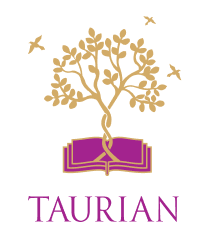Meditation

MEDITATING FOR A MERE 15 MINUTES EACH DAY MAY HAVE A VERY GOOD IMPACT
Modern age philosopher Osho says “No meditation, No life. Know meditation, Know life.”
According to common definitions, meditation is a family of self-regulation techniques that emphasizes developing attention and awareness in order to increase voluntary control over mental processes, which in turn promotes general mental development and/or particular capacities including calm, clarity, and concentration and possibly self-transcendence.
The deliberate, methodical practise of relaxing and concentrating one’s attention is called meditation.
Since ancient times, meditation has been a part of many different religious practices and ideologies. A common aspect of meditation is an interior focus, such as on one item (such as one’s breathing), a sound, or a mantra.
A so-called experience was given to the students of 6-8 of Taurian World School which had turned out to be a success because we believe in shaping and enhancing an individual’s skills and abilities from not only textbooks but from other mind-shaping tools to help students not only learn but explore.
“Meditation brings wisdom, lack of meditation leaves ignorance”
However, learning to meditate effectively is tough and must be done under the guidance of teachers. A person who has never meditated before may have difficulty understanding the nature of his mind and may believe he is meditating while his mind is chaotic.
Meditating for a mere 10 to 15 minutes each day may have a very good impact on people’s lives. It can be practiced anytime, anywhere. Stopping distractions and bringing the mind into a clearer, more lucid state are the initial steps in meditation.
“If every 8 year old in the world is taught meditation, we will eliminate violence from the world within one generation.”
Meditation can help children interpret and respond to internal stress signals before their growing minds and bodies throw a full-fledged tantrum. The key is intuiting what your child requires to rebalance and providing him or her with the tools to practise. For the youngest learners, meditation is probably more like “mindful movement”.
In conclusion, Mindfulness Meditation is a significant practise that can provide natural remedies to a wide range of human health issues.
As a cognitive strategy that aids in the recognition of feelings and thoughts as passive events created in the human mind, it cultivates consistent present-moment awareness that is not reactive, allowing for a more powerful and useful use of brain activity.
Mindfulness and meditation are excellent treatments for Post Traumatic Stress Disorder, a condition in which an individual suffers from recurring episodes of fear and anxiety in reaction to a prior sensory or emotional experience that had a profound influence on the individual.
“The goal of mediation is not to get rid of thoughts or emotions. The goal is to become more aware of your thoughts and emotions and learn how to move through them without getting stuck.”

